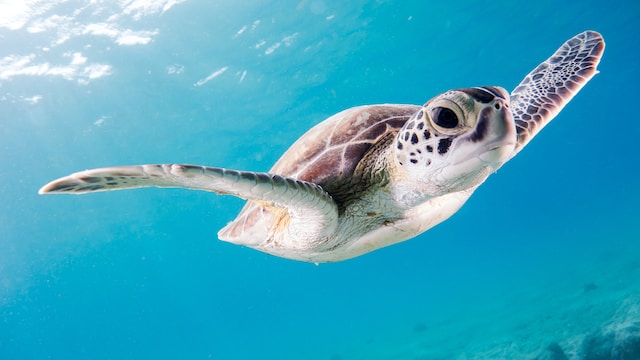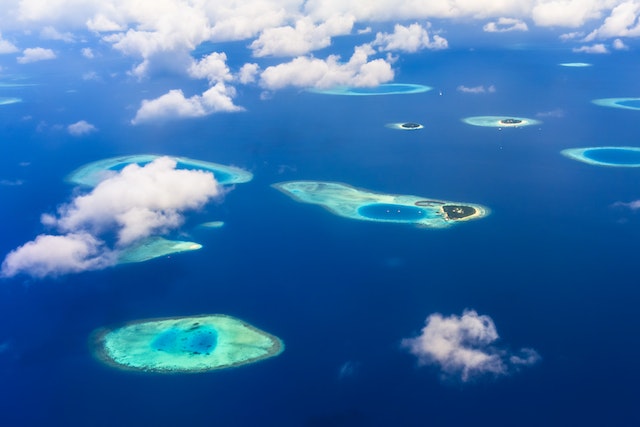Sustainable Tourism in the Caribbean eco-friendly getaways

View of hotels near a beach on a Caribbean Island – PEXELS
Recently, as the global tide shifts towards eco-friendly living, the ripple effects are being felt in the world of travel. After adopting sustainable practices in their daily lives, many individuals are now seeking similar experiences during their vacations. Consequently, sustainable tourism in the Caribbean is gaining prominence. This region, renowned for its azure waters and rich cultures, is embracing this change and leading the way, showcasing how eco-tourism can coexist harmoniously with luxury and relaxation.
The Significance and Principles of Sustainable Tourism in the Caribbean
With its unmatched biodiversity spanning vibrant coral reefs, unique fauna, and lush landscapes, the Caribbean occupies a cherished space in the global ecosystem. Yet, the increasing influx of traditional tourism has raised concerns about potential environmental degradation and cultural dilution. Embracing sustainable tourism in the Caribbean not only safeguards these treasured ecosystems but also ensures that local communities reap tangible economic benefits.

For years, the Caribbean’s breathtaking beauty has magnetically attracted global travelers seeking its serene shores and vibrant culture – UNSPLASH
As we delve deeper into sustainable tourism, it’s essential to recognize its foundational principles:
- It’s not just about minimizing environmental impact. Sustainable tourism seeks to promote local businesses, ensuring that the communities benefit directly from the visitors.
- Emphasizing the use of resources so that their future availability isn’t compromised, ensuring that the beautiful Caribbean landscapes remain untouched for future generations.
- Visitors are encouraged to engage with and respect indigenous cultures, understand their traditions and practices, to genuinely experience the soul of the Caribbean.
- A broad spectrum of eco-friendly practices, from waste management to energy consumption, ensures that the footprint left behind is minimal.
Eco-Friendly Accommodations in the Caribbean
By integrating sustainable practices with luxury and comfort, the Caribbean offers an array of accommodations that promise relaxation and resonate with the values of eco-friendly living.
Ecolodges
With their commitment to sustainability, Ecolodges are the crown jewels of eco-friendly accommodations. Places like the Rosalie Bay Resort in Dominica, which won a Sustainable Tourism Award in 2023, exemplify this. Nestled amidst nature, these lodges are built using sustainable materials, often sourced locally.
Their operations prioritize minimal environmental impact, from solar-powered energy to organic waste management, ensuring guests immerse themselves in the natural beauty while leaving the lightest of footprints.
Green Hotels
Certified green hotels are a testament to the Caribbean’s commitment to sustainable tourism. For instance, the Bucuti & Tara Beach Resort in Aruba boasts a carbon-neutral footprint. These hotels undergo rigorous audits to ensure adherence to stringent environmental standards.
This could range from water conservation initiatives to supporting local wildlife conservation projects. As guests relax in these havens, they can be assured of their choice’s positive environmental implications.
Sustainable Villas and Homestays
The Caribbean offers sustainable villas and homestays for those seeking a more intimate connection with the local culture and environment. These accommodations allow guests to live like locals while adhering to eco-friendly standards. They often incorporate renewable energy, water-saving fixtures, and organic gardens, offering a holistic, sustainable living experience.
Sustainable Activities and Experiences
When we think of the Caribbean, often the first images that come to mind are of white sandy beaches and crystal clear waters. However, beyond this picture-perfect facade lies a treasure trove of eco-conscious activities and experiences. There’s no shortage of sustainable opportunities for those wanting to deepen their connection with the region’s natural and marine wonders.
Marine Conservation
Oceans play a pivotal role in the Caribbean’s ecological balance. Bonaire’s Coral Restoration Foundation is a testament to regional marine conservation efforts.

Sustainable tourism in the Caribbean offers marine conservation efforts, granting visitors glimpses of wondrous oceanic life – UNSPLASH
Here, visitors can participate in coral reef restoration projects, learning about the intricacies of marine ecosystems and contributing to their preservation. The hands-on approach fosters a deeper understanding of the importance of coral reefs to the Caribbean’s biodiversity.
Nature Tours
The Caribbean is a nature lover’s paradise, offering an array of pristine landscapes waiting to be explored. Tobago’s Main Ridge Forest Reserve is one such gem.
As the oldest protected rainforest in the Western Hemisphere, it boasts a variety of hiking trails and bird-watching spots. Tourists often marvel at the myriad of bird species, from hummingbirds to trogons, making it a must-visit for avian enthusiasts.
Sustainable Diving and Snorkeling
The Caribbean is renowned for its underwater wonders. Dive centers across the islands, such as those in the Cayman Islands, emphasize eco-friendly diving practices. By teaching divers about buoyancy control, marine life interaction, and the significance of not touching or collecting marine life, these centers ensure a sustainable interaction with the marine environment. Snorkeling excursions, too, often incorporate educational components, ensuring visitors know everything you need to know about the Cayman Islands reefs or whichever island they’re exploring.
Local Farm Visits
A growing trend in the Caribbean is the emphasis on farm-to-table experiences. Islands like Jamaica and Puerto Rico offer guided tours to local organic farms to support sustainable tourism in the Caribbean. These visits allow travelers to understand local agricultural practices, sample fresh produce, and even participate in day-to-day farm activities. It’s an excellent way for tourists to get a taste of genuine Caribbean flavors while supporting sustainable agriculture.
Community-Based Tourism Initiatives
The embrace of sustainability isn’t confined to the tourism sector; its ripple effects are felt across various industries. An interesting case in point is the survey conducted by excalibur-movers.com, which found that an increasing number of people, even amidst life transitions such as relocating homes, are keen to boost local economies and support eco-friendly practices. Such shifting paradigms underscore the importance of community-based tourism initiatives.

Visiting a Rastafarian village offers travelers a unique opportunity to delve deeply and embrace unfamiliar cultural nuances – PEXELS
In the Caribbean, these grassroots initiatives provide visitors with an authentic experience while promoting sustainable livelihoods for the local communities. Jamaica’s Rastafari Indigenous Village is a stellar example, where guests engage directly with Rastafarians, understanding their traditions, crafts, and way of life.
Similarly, in Belize, the Community Baboon Sanctuary protects the black howler monkeys while offering eco-tourism opportunities. These initiatives provide a unique cultural immersion and empower local communities to become custodians of their rich heritage and natural resources.
Beyond Today: The Caribbean’s Sustainable Tomorrow
The allure of the Caribbean, with its commitment to sustainability, does more than just offer a brief escape. Immersing oneself in the practices and beauty of sustainable tourism in the Caribbean might just kindle a deeper connection, inspiring not only repeated visits but perhaps the enticing thought of buying your first home in the Caribbean. After all, the region exemplifies how we can seamlessly blend modern living with nature’s rhythm, suggesting a promising blueprint for our sustainable futures.





